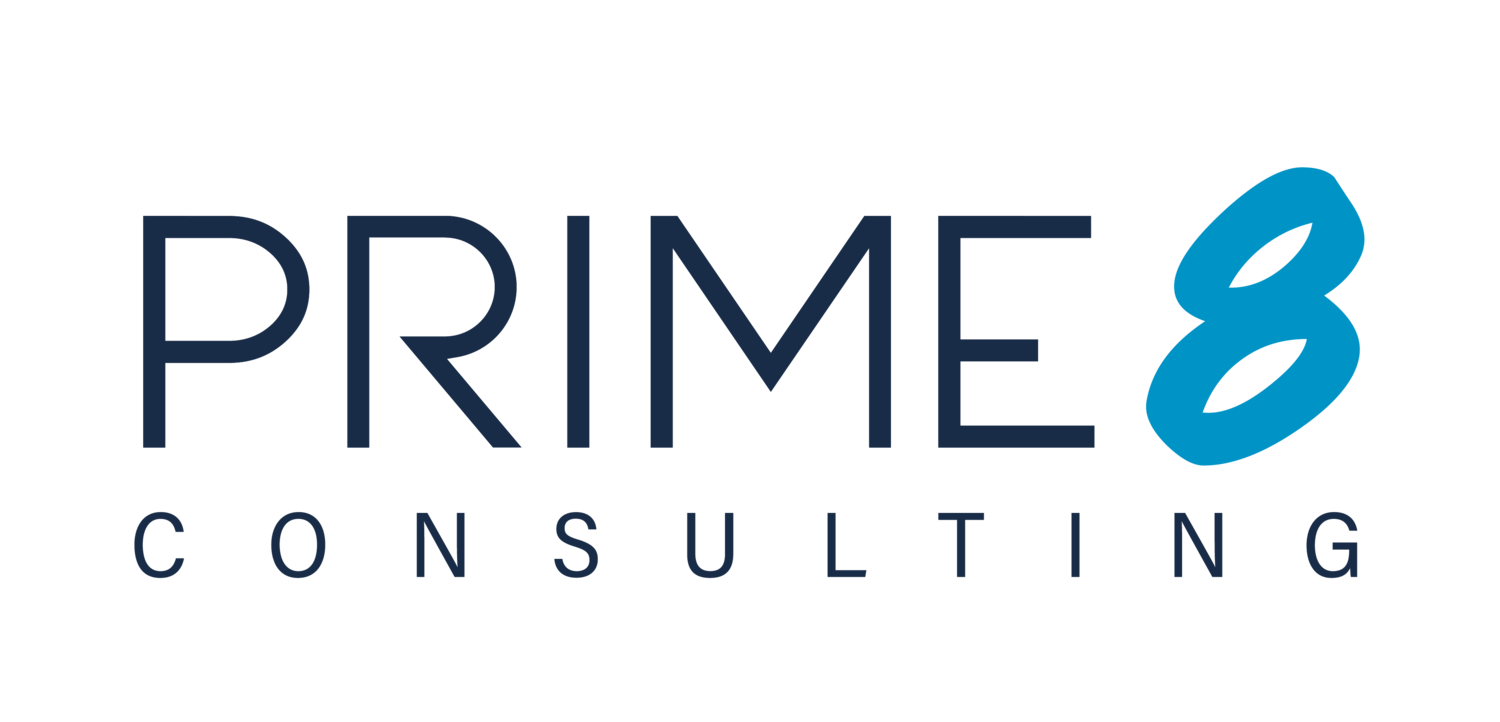Is Your Data Ready for AI?
Highlights
Companies of all kinds are turning to AI to deliver new customer and employee experiences that drive revenue.
Making these AI-based initiatives successful requires investing in underlying data readiness capabilities.
Prime 8 business intelligence consultants have extensive experience setting the strategy and managing the implementation of data readiness for AI, including comprehensive data readiness assessments and data readiness frameworks.
In the rapidly evolving landscape of modern business, artificial intelligence (AI) has emerged as a transformative force. Whether it's streamlining your travel plans, navigating traffic jams, or receiving spot-on personalized recommendations, AI is already an integral part of our daily lives. It's no longer just a cost-cutting measure but a strategic tool that empowers businesses to enhance customer experiences and, ultimately, boost revenue.
According to the 2023 Global Trends in AI Report, more than two-thirds of surveyed organizations report having at least one AI project in production, with the majority of those projects focused on ways to generate new revenue. Nearly a third are using generative AI — a dramatic acceleration in the adoption of the technology that powers the popular ChatGPT platform.
Many, however, are running into problems.
Obstacles in AI Adoption: What the Data Tells Us
While the research shows AI is increasingly popular — and delivering a powerful business impact — it also shows that the prospects for any single AI project are unpredictable due to various AI technology challenges.
In a survey conducted by MIT Sloan Management Review and Boston Consulting Group, seven out of 10 organizations realized little value from their AI initiatives.
What causes an AI implementation to miss the mark? It’s not the challenge of constructing workable AI models or generating the underlying algorithms; the problem for most businesses is the lack of clean, accurate data.
The 2023 Global Trends in AI Report found that sourcing, organizing, and managing data are the leading challenges for companies that want to implement AI technology, outweighing even security and compute performance.
The data management challenge long predates the world of AI — the adage ‘garbage in/garbage out’ goes back to the earliest days of computers. The difference now is one of scale — both in quantity and quality.
But while most organizations today have vast amounts of information at their disposal, it’s often in different locations, stored in incompatible formats, and controlled by applications that can’t easily talk to one another.
Why You Need Data Readiness
Data readiness is not just a prerequisite for successful AI implementation; it's the cornerstone of data-driven decision-making that can transform your business. High-quality, well-preprocessed, and properly labeled data not only maximizes the ROI of AI projects — it also empowers people at all levels of your organization to make more accurate and informed decisions.
Without a robust data readiness framework, your organization risks making decisions based on incomplete or inaccurate data, leading to wasted resources and missed opportunities. What’s more, lack of data readiness can significantly delay AI projects, causing you to fall behind in the fast-paced race towards digital transformation and may result in budget overruns.
From enhancing performance and optimizing resource utilization to reducing bias in critical applications like hiring and lending, data readiness sets the stage for leveraging AI to its full potential, thereby enabling smarter, more strategic choices across your organization.
A Strategic Approach to Data Readiness
At Prime 8, our business intelligence consultants have extensive experience in addressing data readiness issues, beginning with a data readiness assessment, then addressing data management issues, typically in a two-phase process: objective clarification and data preparation.
Objective Clarification
The first step is to focus on getting clarity on the objectives of your AI project and then ensuring that the raw data being collected (and the sources) align with those objectives. This step is often overlooked, with devastating consequences.
Incorrect assumptions from this stage that get baked into the process inevitably lead to problems that are costly and time-consuming to resolve later on.
Data Preparation
Once sources and objectives are established, we design the process for preparing the data. This can be an extensive and multi-step process that, depending on the objectives, scope, and quality of the data, can involve:
Cleaning the data — removing noise, inconsistencies, and irrelevant information
Ensuring accurate labeling
Implementing version and access controls
Ensuring alignment with relevant regulations such as GDPR and HIPAA
Defining policies for data governance in AI including retaining data based on legal requirements, project needs, and storage costs
Setting a strategy for archiving — handling older data that's no longer actively used but might be valuable for future analysis or regulatory compliance
The potential impact of AI technologies like generative AI cannot be overestimated, but neither can the critical value of setting a clear data strategy and making the appropriate investment in data sourcing and processing right from the start.
Specialized Expertise in Data Management: What Sets Prime 8 Apart
At Prime 8, the vast majority of engagements for our business intelligence consultants involve fundamental data organization issues that have significant impact throughout client organizations.
Here are a few examples from our customer stories:
A global tech company was spending millions on global marketing efforts, but because its various divisions organized and allocated data in different ways, there was no way to analyze and compare those expenses from one category or region to another.
A major services company wanted to create monthly sales forecasts, but the data it needed was lodged inside various applications — CRM, HR, finance, payroll, and Microsoft 365 — that couldn’t talk to each other. A financial analyst was devoting 30 hours per month to producing the forecast.
A large technology provider was scaling its partner program, but because data about individual partner performance was so siloed, managers could not get a clear picture of who and what was working.
Our BI consultants stepped in and created solutions that allowed these companies — and many more like them — to make optimal use of their data.
When you choose Prime 8, you're investing in a team of seasoned business intelligence consultants who not only excel in data preparation but also leverage cutting-edge technologies for efficient data management.
With our expertise in AI-driven data visualization tools like Power BI, we don't just organize your data — we transform it into actionable reporting and insights. Trust Prime 8 to accelerate your journey toward data-driven decision-making and enhanced ROI.
Is Your Company Ready for AI?
Where are you headed with your AI initiatives? Talk to us! Let our Business Intelligence consultants help get your strategy off the ground with a foundation of solid data management, including a thorough data readiness assessment.

























